Take Control Over Alcohol
With Hypnosis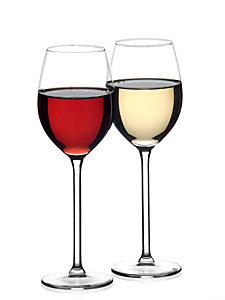
Ready to just forget about drinking?
Wish you could just stop thinking about alcohol?
Want to stop the pain and sadness that leads you to drink?
Need to put an end to alcohol controlling you?
Or would you like to cut down, enjoy “just one” and stop?
I can help
Many people with too much stress or worry turn to an alcoholic drink to calm their nerves and provide some feelings of relaxation. Alcohol in moderate amounts can have a relaxing effect.
Some people use alcohol to relax after work. Maybe it’s a glass or two of wine, a shot of whiskey, vodka, beer,.. whatever. In moderate amounts alcohol is said to be good for us. However it is when alcohol is used in excess, maybe to escape from dealing with a life problem, that alcohol can become an issue and a serious one, too.

If you are drinking early in the morning, if you can’t face the day without a drink, if you always need ‘confidence’ before attending a meeting whether social or professional, if you try to conceal how much you drink or are in denial about your drinking, if you can’t stop after 1 or 2 drinks, then you do have a problem.
What many people don’t realize is that excess alcohol consumption can create a feeling of depression. If you drink too much and then feel depressed and out of control, you will drink again to try and suppress or numb the feelings and a vicious cycle begins.
The cycle continues with the possibility of a relationship or marriage being jeopardized, divorce, job loss leading to financial worries, loneliness – all results of drinking which contribute to further depression which leads to more drinking.

The only person who can permanently stop someone from drinking excessively is the drinker themself. No amount of yelling, begging, explaining, cajoling, persuading or threatening from loved ones seems to make any difference. As with anything in life that is worth having or getting, it all begins with a decision. Making up your mind comes first and then action follows.
Hypnosis works well alone by itself or in conjunction with other programs as reinforcement. Only you can decide what’s right for you. Maybe you’re in a Detox Program but need greater inner resolve to make it a success? Perhaps you’re already attending AA meetings but need more help? Or perhaps AA isn’t to your liking and you’re looking for a different kind of program? You might be attracted to the privacy and confidentiality of one-on-one therapy or hypnosis sessions with me.

Hypnosis has been used successfully to help people with an alcohol issue. It still requires you to take responsibility for yourself and your life choices. Hypnosis sessions or alcohol self-hypnosis Audio Downloads may just give you enough insight to help you take control of your drinking, take back control of your life and start enjoying life again.
Do You Have a Drinking Problem?

1. Do you feel drinking makes you a happier person?
2. Do you have a sense of regret after drinking?
3. Have you missed time from work or school because of your drinking?
4. Has the quality of your performance at work or school declined?
5. Do you drink alone?
6. Have you ever blacked out or forgotten where you were while drinking?
7. Has your drinking been the cause of tension or arguments with friends, colleagues or loved ones?
8. Do you think about drinking during the day?
9. When you are drinking does it change your personality?
10. Do you spend money you really can’t afford to at bars or on alcohol?
I can help you with Cognitive Behavioral Therapy and/or hypnosis


If you answered yes to some of these questions, then hypnosis is the right tool for you to take back your control over alcohol and your life. Hypnosis is effective in changing your thinking about how and how much you drink. Hypnosis can help you safely reduce the amount you drink or find the confidence to stop altogether.

Hypnosis session with
Susan Gayle MS, CH, RMT
Hypnosis, or the hypnotic state, getting down into a special trance-like state between sleeping and waking, is an amazing place because you are so much more likely to take a suggestion deep into your mind and therefore your behavior. Hypnotherapy, self-hypnosis, hypnotism: it’s about getting around the skeptical part of yourself, the part of the brain that blocks you from moving forward and getting through to that part that will help you.
Does living without drugs or alcohol sound boring or scary? Alcohol numbed your pain when we needed it, provided social ease and fun, but eventually turned negatively on you. Hypnosis and self-hypnosis can provide the same joy, reinforce the goals you really want, re-energize your tired engines without the negative side effects.
New brain scan technology shows that hypnotic suggestions can cause the pleasure centers of the brain to light up. In a 2005 hypnosis and brain-imaging study conducted at the University of Iowa, doctors found that hypnosis actually blocks pain signals from getting to the part of the brain responsible for discomfort. This goes for everything from emotional pain to surgery in a dentist’s chair!

Hypnosis session with
Susan Gayle MS, CH, RMT
I know that you may drink too much for many reasons, not just to avoid pain. Sometimes there seems to be a biological imperative to drink too much. Sometimes childhood memories seem to drive us to drink. Sometimes we just want to drink for personal reasons. To relax, to forget, to remove boredom. Cognitive Behaviorial Therapy and hypnosis have proven to be among the most effective tools available.
The American Journal of Clinical Hypnosis, April 2004 cites a study where 261 veterans were admitted to Substance Abuse Residential Rehabilitation Treatment Programs. Results in this study on alcohol and hypnosis revealed that the individuals who played the self-hypnosis Audio Downloads “at least 3 to 5 times a week” for at least 6 weeks reported, at their two month follow-up, the highest levels of self-esteem and serenity, and the least anger/impulsivity, in comparison to the minimal-practice and control groups.
The Journal’s study also showed that the groups who used the self-hypnosis Audio Downloads felt more in control of all their habits, their drinking, their eating, their social behaviors, and showed significantly higher abstinence rates than the groups that just got stress-management therapy. At the one year follow up, the group who continued to use hypnosis and self hypnosis Audio Downloads on a regular basis had insured themselves against relapse.
It is important to make listening to your Audio Download a good experience and a relaxing one. Keep your hypnosis Audio Downloads where you can play them whenever you want to and before you really need to (but never while driving or operating machinery).
The challenge with controlling alcohol and quitting drinking permanently is the same challenge one would face with any compulsive habit such as gambling, cocaine use, smoking, overeating or anything similar.
You engage in the activity, enjoy the activity, regret doing the activity, promise yourself you will never do it again, and then find yourself doing it again as if you had never made that promise.
You repeat this pattern over, over and over until you bottom out. Until something happens to you that makes you decide once and for all that you are done with this repetitive cycle that controls you. When you finally decide that Freedom is more important and compelling than the substance or behavior. You’ve had it and want out.
How many times when you felt down and out, felt like alcohol controlled you and was ruining your life and negatively affecting your relationships with friends, family, and even people you met for the first time, did you know what was happening and say ‘never again,’ this is the last time. Unfortunately at those moments you were probably drunk.
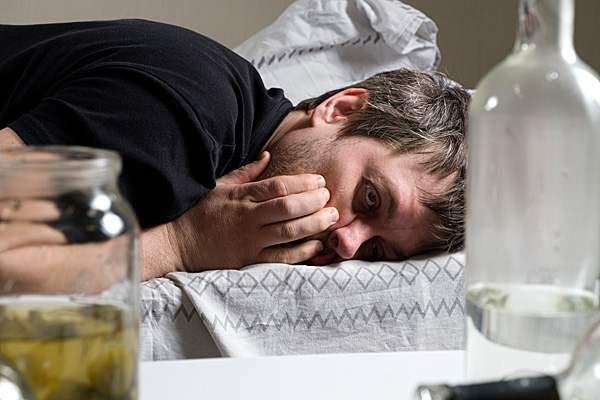
And so that power that you had in that moment of feeling terrible at the end of a night of drinking tended to disappear and be wiped away the next morning or afternoon when you woke up somewhat sober.
As the day progressed, you tended to forget those great reasons for quitting drinking and re-focus on your reasons for drinking. However, once you have lost excess money, health, friends, self respect, and things which really matter to you, then you have the ultimate power you need to stop drinking once and for all.
It’s at that time that people finally and resolutely turn to methods such as hypnosis to help them successfully take back their control.
Whether or not you have bottomed out doesn’t matter. Hypnosis for alcohol abuse is helpful whether you have just begun drinking or whether you are pretty good at it. I can help.

Realize that you’re not alone – that many people have been where you are now. Many people have been to the point where they thought their life was out of control or they thought that alcohol was controlling them. They felt powerless, they felt they could not get better, they could not stop drinking, and yet they were able to, as hypnosis gave them back their inner power and strength to break through the chains to take control again.
You can change in an instant and if you decide right now to never drink again, you have the power with or without hypnosis to have that be true in your life. But if you feel that you need help to get there, my sessions and my Audio Downloads are here to help you achieve Freedom From Alcohol!
Hypnosis is the easiest way to affect AMAZING and LASTING change in your life because the positive messages go straight to your subconscious mind effortlessly. You can accomplish your goals!
Anxiety Disorders and Alcohol Abuse

For some people, a glass of wine after a long day at work is used to help “take the edge off,” or a drink at a party to help “loosen up.” For many of these individuals, alcohol use in moderation is not of concern. However, for people with anxiety disorders, using alcohol or other substances can make anxiety symptoms worse and can even trigger panic attacks. Moreover, the risk and occurrence of alcohol abuse is high in people with anxiety disorders. This makes alcohol use an important issue to consider for people with anxiety disorders.According to a major study released in 2004 on co-occurring alcohol abuse and mental health disorders (called the National Epidemiologic Survey on Alcohol and Related Conditions and conducted by the National Institute on Alcohol Abuse and Alcoholism), about 20 percent of Americans with a current anxiety or mood disorder (such as depression) also have a current alcohol or other substance abuse disorder, and about 20 percent of those with a current alcohol/substance abuse disorder also have a current anxiety or mood disorder. Other studies have put these numbers even higher.While having co-occurring alcohol abuse and anxiety disorders can make an individual’s situation more complex, the good news is that these disorders are treatable – separately and together. Read on to learn more about the co-occurrence of anxiety disorders and alcohol abuse, and how they can be treated.
Are people with anxiety disorders more likely to suffer from alcohol abuse than the general population and vice versa?
People with anxiety disorders are two to three times more likely to have an alcohol or other substance abuse disorder at some point in their lives than the general population, and vice versa. However, as explained in more detail later in this piece, the risk and prevalence of alcohol abuse is more common among people with certain anxiety disorders than others.
Which occurs first in people with co-occurring disorders – the anxiety disorder or alcohol abuse?
There is a lot of variability in how people experience these conditions together. Possible courses of the co-occurring conditions include:
- The alcohol abuse and anxiety disorders are independent of one another, meaning that one does not cause the development of the other. However, the symptoms of one can make the symptoms of the other worse.
- An anxiety disorder leads an individual to use alcohol or other substances to “self-medicate,” or attempt to alleviate their anxiety symptoms on their own (which does not help, and only exacerbates, their anxiety).
- An alcohol abuse problem causes heightened anxiety during certain specific periods of abuse, such as during the actual time of drinking and/or withdrawal states (some studies have shown the withdrawal from alcohol may activate the same neural pathways as anxiety). These anxiety symptoms may go away during other times and usually are eliminated completely after the problem drinking stops.
- An alcohol or other substance abuse problem leads to development of a substance-induced anxiety disorder in which a person’s substance abuse causes anxiety to exist all or close to all the time during a period of alcohol or other substance abuse in one’s life. This may happen because some substances change the way brain cells communicate with each other, including affecting the amount of neurotransmitters (or chemical messengers) in an individual’s nervous system. Thus, substance abuse can damage parts of the brain that keep anxiety in check. This type of anxiety disorder will last during the period of substance abuse, and sometimes for a short period of time after the substance abuse has stopped.
In the past, there was a general consensus that among people who abuse alcohol, those who also had an anxiety and/or mood disorder were usually substance-induced and the disorder would disappear once the substance abuse was treated.
However, according to the earlier-mentioned National Epidemiologic Survey on Alcohol and Related Conditions, the vast majority of people with both alcohol/substance abuse and anxiety disorders experience them independently, with none or only some of anxiety episodes being induced by alcohol or drugs. This is important point for both patients and therapists, who should not assume that treating substance abuse will solve an anxiety disorder on its own. Treating both disorders together is often necessary.
I am both a Cognitive Behavioral Therapist and Hypnotherapist and I will work you on both issues. Are you ready to create a NEW YOU?
Contact me to get started on the New You
What added difficulties can arise from having both alcohol abuse and anxiety disorders?
Having both an anxiety disorder and alcohol abuse disorder can have a “vicious cycle” effect. For example, someone with an anxiety disorder may use alcohol to alleviate their anxiety symptoms, causing them to experience more anxiety as a side effect of using these substances, which then leads them to drink more alcohol. Other complications may include:
- People with the co-occurring disorders are at high risk for many additional problems such as hospitalizations, financial problems, family problems and medical illnesses.
- People with both disorders may have lower treatment compliance than people with just one disorder.
- People with both an anxiety disorder and alcohol abuse have an increased risk of relapse into alcohol abuse than people who have an alcohol problem without anxiety.
- People with both disorders may be at an increased risk for experiencing dangerous interactions between prescription medication and alcohol (in the event that they relapse into alcohol abuse) than people with an anxiety disorder alone.
- People with an anxiety disorder may have more pronounced alcohol withdrawal symptoms than alcohol abusers without anxiety.
This makes it of the utmost importance to treat both disorders. The above points should all be discussed with a doctor when determining an individual treatment plan.
I will work with your doctor as part of your treatment team.
Are there specific anxiety disorders that are more often associated with alcohol abuse?
How does the relationship between anxiety and alcohol differ based on a person’s specific anxiety disorder?
While individuals with any anxiety disorder can also have an alcohol abuse problem, research has found this co-occurrence is more common in people with certain anxiety disorders, including social anxiety disorder (SAD) and post traumatic stress disorder (PTSD).
Moreover, some research has shown the order in which the disorders develop often varies based on the type of anxiety disorder (although, as noted earlier, any order of development is possible as every person is different). For example, alcohol abuse in people with SAD and agoraphobia usually develops after the onset of the anxiety disorder (with people reporting they are using the alcohol in an attempt to control anxiety, i.e., “self medication”).
On the other hand, alcohol abuse commonly begins before or at the same time as anxiety symptoms in people with generalized anxiety disorder (GAD) and panic disorder. Again, this is not always the case.
Some disorders also have noteworthy considerations/circumstances when co-occurring with alcohol abuse. These include:
Panic Disorder – Panic attacks can often be caused by use of alcohol or drugs, worsening the course of a person’s disorder (or even inducing it). Panic disorder has also been singled out in research as a risk factor for a major substance abuse relapse among people with both disorders.
Posttraumatic Stress Disorder (PTSD) – PTSD and alcohol abuse may commonly occur together for a variety of reasons, including alcohol abuse may increase the likelihood of being exposed to trauma (and thus developing PTSD), or individuals with PTSD may use alcohol to “self medicate” in an attempt to ease their symptoms. Many characteristics of substance abuse can exacerbate symptoms of PTSD, including sleep disturbance and irritability. While professionals in the past often treated substance abuse before treating co-occurring PTSD, many now treat them together because symptoms of PTSD (such as intrusive thoughts and sleep disturbance) can drive relapse to substance abuse.
Social Anxiety Disorder (SAD) – Often, people with social anxiety report that alcohol helps lessen their social anxiety, which is likely why alcohol abuse is so common in this population. However, in reality, substance use often makes anxiety worse. There are also special treatment considerations for people with co-occurring substance abuse and social anxiety. Certain treatment approaches commonly used for substance abuse, such as group therapy or 12-step programs (used by Alcoholics Anonymous or Narcotics Anonymous) may be difficult for a socially anxious person. Thus, a more individualized treatment strategy may be necessary for people with co-occurring SAD and substance abuse.
Can an anxiety disorder and substance abuse be treated at the same time and by the same professional?
Many professionals will suggest treating these conditions at the same time to offer the best chance for successful recovery and lessen the chance of relapse, particularly when one disorder is not causing the other. (For a substance-induced anxiety disorder, the substance abuse would be addressed first because the anxiety should improve after abuse terminates). Many professionals or treatment teams can treat these disorders together. Ask your doctor if he or she can treat both conditions by him/herself, or in conjunction with another professional as part of a treatment team.
What treatments are available for people suffering from both?
Researchers are still exploring how to best treat people with both conditions. Many therapists will attempt to use non-medication treatments for people with both anxiety and substance abuse disorders because of the increased risk for abuse of medication among substance users. When prescription medications are used, therapists aim to use ones that have low abuse potential and that are safe if taken with abused substances should a person relapse into alcohol or drug use. (Note that even when considered “safe” by an interaction standpoint, medications that treat anxiety and/or substance abuse are less effective when used with alcohol or drugs.
The above article is from ‘Anxiety Disorders and Alcohol Abuse’ from the ADAA.org
a copy of which can be found at: myptsd.com.
Many doctors will avoid prescribing people with both disorders benzodiazepines, another group of medications also used to treat anxiety disorders, because they can carry an increased risk of abuse, tolerance and physical dependence and thus may not be the best option for someone with current or past substance abuse.
The choice of medication should be discussed carefully between doctor and patient and will always depend on individual circumstances. This choice will also depend on the specific anxiety disorder a person suffers from (i.e., panic disorder, obsessive-compulsive disorder, etc.), as some medications will be more effective than others for an individual disorder.
Other treatment options for both anxiety disorders and substance abuse, which can be used alone or in combination with medication, include:
(This comment was added by me, Susan Gayle, Founder the New Behavior Institute) ~ Susan
Cognitive-behavioral therapy (CBT) – Individuals learn to identify, challenge and gain control over unwanted behaviors. As a Cognitive Behavioral Therapist, I use these therapies which have been demonstrated to be effective in both anxiety and substance abuse issues.
Individual psychotherapy – In my practice, you will explore areas of emotional and social conflict. This helps to solve both issues.
Group psychotherapy – I offer groups for clients to discuss shared and individual experiences. This helps to solve both issues.
Self-help/other treatment groups – Individuals with similar needs or experiences meet, and meetings are facilitated by a consumer, layperson or survivor. Self-help groups for anxiety disorders can be found on ADAA’s website here.
You can also contact Alcoholics Anonymous or Narcotics Anonymous
for meetings in your area.
• • • • •
References and Resources
About.Com: “Anxiety Disorders Can Prompt Alcoholic Relapse”
Alcoholics Anonymous
Alcohol Research & Health: “Social Anxiety Disorder and Alcohol Use” (Vol. 26, No. 2, 2002)
American Journal of Psychiatry: “Alcohol Use and Anxiety: Diagnostic and Management Issues” (164:2, February 2007)
Narcotics Anonymous
National Drug Intelligence Center (Department of Justice)
National Institute on Alcohol Abuse and Alcoholism
National Institute of Mental Health
Psychiatric Times
Substance Abuse and Mental Health Services Administration
The International Society for Traumatic Stress Studies
WebMD: “Anxiety Disorders Linked with Alcoholism Relapse”
Facts about Alcohol:
Alcohol contributes to 100,000 deaths annually, making it the third leading cause of preventable mortality in the U.S., after tobacco and diet/activity patterns (J McGinnis & W Foege, “Actual Causes of Death in the United States,” Journal of the American Medical Association (JAMA), Vol.270, No.18, 11/10/93, p. 2208).
Among 9,484 deaths attributed to non-medical use of other drugs in 1996, 37% also involved alcohol (SAMHSA, Annual Medical Examiner Data 1996, 7/98, p. iii).
Drugs and Alcohol at Work

21% of workers reported being injured or put in danger, having to re-do work or to cover for a co-worker, or needing to work harder due to others’ drinking (Ibid, p.2).
Up to 40% of industrial fatalities and 47% of industrial injuries can be linked to alcohol consumption and alcoholism (M Bernstein & JJ Mahoney, “Management Perspectives on Alcoholism: The Employer’s Stake in Alcoholism Treatment,” Occupational Medicine, Vol 4, No. 2, 1989, pp. 223-232).
60% of alcohol-related work performance problems can be attributed to employees who are not alcohol dependent, but who occasionally drink too much on a work night or drink during a weekday lunch (TW Mangione, et. al, “New Perspectives for Worksite Alcohol Strategies: Results from a Corporate Drinking Study,” JSI Research & Training Institute, Inc., Boston, MA, 12/98, p.1)

Employees who were in serious trouble with alcohol showed significant improvement in drinking behavior and job adjustment during the months immediately following an intervention to confront problem drinking that was intruding on their work (NIAAA, Alcohol Health & Research World (AHRW): Alcohol and the Workplace, Vol. 16, No. 2, 1992, p.147).
Questionnaire
Do you have a problem with drugs or alcohol?
Take a moment to ask yourself the following questions. Be sure to read through them all and be honest about your answers.
Are you unhappy?
Do you find yourself focusing on drugs/alcohol to the exclusion of work and family responsibilities?
Do you feel that you are different? That you are not an addict – that if it weren’t for your spouse, job stresses, money problems, etc. that you would not be using?
Does the thought of living without drugs and alcohol seem impossible, too painful?
Do you ever feel trapped – that you can’t stop using and you can’t go on the way you’re living?
Do you switch from vodka to beer to wine, from one drug to another, thinking that a particular type of substance is the problem?
Are you in jeopardy of losing your job or family because of your drinking/drug use?
Do you use or drink alone?
Do you refuse to go places where you cannot use or drink?
Do you hide your use or lie about the amount you drink or use?
Do you have any legal problems, like a DUI, felony arrests or other “brushes with the law” where your drug/alcohol use was present?
Have you ever used cocaine, crack, heroin, pot? Ecstasy, blue ice, pcp, acid or any other designer drugs?
In the past, have you stopped, cut down, or decided to use/drink “only on weekends,” only to find your use back in full swing after a short time?
Do you ever feel like you are going crazy, that your life is out of control?
Is it getting harder to keep it all “under control” – hiding your use, showing up for work, looking and acting “normal,” pretending to be ok?
Do you use to manage feelings of anger, loss, loneliness and other emotional pain?
Has anyone commented about your use being excessive?
Do you feel that no one can help you or that you are beyond help?
Do you continue to use despite negative consequences?
If you answered ‘yes’ to any of these questions, feel free to contact me.
If you answered ‘yes’ to 3 or more questions, don’t wait to contact me!
The Components of Alcohol Abuse and Treatment
Alcohol abuse has several definitions. The definitions may even be conflicting. Historically, alcohol abuse refers to any condition which results in the continued consumption of alcohol despite recurrent negative outcomes.
Medical communities describe alcohol abuse as a physiological disorder which causes difficulty in controlling alcohol consumption. Another definition states that alcohol abusers may not be able to perceive the negative effects of their alcohol consumption and therefore continue with their behavior including a compulsion or preoccupation with alcohol. Though the ingestion of alcohol is essential to developing abusive drinking, drinking will not necessarily precede overuse. The amount of alcohol and the frequency with which alcohol is consumed changes for each person.
Does genetic predisposition have a role in alcohol abuse?
There is at least one genetic test for an allele (‘an alternative form of a gene that arises from mutation and found at the same place on a chromosome’ Dictionary.com) that is associated to alcoholism and opiate addiction. Though this allele is more common in individuals with alcohol addiction, there is no conclusive evidence that the presence of this gene is necessary for alcohol addiction. Some researchers argue that the evidence for such alleles is contradictory.
There is a theory that alcohol was discovered and utilized as a replacement for polluted drinking reservoirs in urban society. In this case, death from liver disease was preferred to death by waterborne disease. Over time, this resulted in a selection process of genes that were able to handle more alcohol. Essentially the population changed from being a predominately hunter-gatherer society to more urban. This theory explains why certain groups like Aborigines or Native Americans have a higher alcohol tolerance.
What are the effects of alcohol abuse?

The effects of alcohol abuse range across all aspects of the individuals life. The main effect is the individual drinking alcohol in overabundance at times that they should not thereby causing damage to themselves and possibly others. Some of the potential effects of alcohol abuse include but are not limited to the following:
Physical effects: cirrhosis of the liver, pancreatitis, alcoholic dementia, heart disease, nutritional deficiencies, sexual dysfunction, and death from many sources.
Social effects: Marital conflict and divorce, social alienation because of behavior.
Economic Effects: loss of employment, financial problems such as loss of living quarters, poor judgment.
Legal Consequences: charges for drunk driving or public disorder. There is also the possibility of domestic violence either to spouse or children.
Emotional Consequences: alcohol abuse can effect the individual drinking as well as the recipients of probable abuse. For instance, heavy drinkers’ children can experience delays or damage to their emotional development. Friends and family who perceive over-drinking as self inflicted may lose respect for the drinker further diminishing his or her social support network.
Alcohol Treatments
Depending on what school of thought is utilized, alcohol treatment may be approached from different angles. Treatment includes managing physical symptoms and behavioral changes, which may be attained by therapeutic treatments ranging from hypnosis to psychotherapy to medications. Life training and social support are usually needed to help individuals continue sobriety.
Does Alcohol Treatment Work?
This depends on the program, if the program is completed and the commitment the individual has to successfully altering their behavior. This is not to say that other factors don’t also come into play. Whether the person has social support and is aware of what resources are available also determines how effective treatment is as well as the possibility of long term success.
According to data collected by the National Institute on Alcohol Abuse and Alcoholism, about a third of alcohol abusers are sober a year after treatment. An additional forty percent are doing better but still drink and a quarter has relapsed. For this reason, there is no equation that can determine whether or not treatment will work. Each case is a different person and must be approached as a separate case. This means that treatment plans for alcohol treatment should be tailored to the individual in order to procure the best outcome.
What About After Treatment?
In addition to cessation of drinking, long term use of B12 and folate is suggested to treat the effects of chronic alcohol use on the liver. Insulin resistance can also occur as a result of the use of alcohol. These are factors drinkers must consider if continuing this damaging habit.
1. National Institute on Alcohol Abuse and Alcoholism 2001-2002 Survey Finds That Many Recover From Alcoholism Press release 18 January 2005.
2. Nurnberger, Jr., John I., and Bierut, Laura Jean. “Seeking the Connections: Alcoholism and our Genes.” Scientific American, Apr2007, Vol. 296, Issue 4.
3. New York Daily News (William Sherman) Test targets addiction gene 11 February 2006
4. Ulf Berggren, Claudia Fahlke, Erik Aronsson, Aikaterini Karanti, Matts Eriksson, Kaj Blennow, Dag Thelle, Henrik Zetterberg and Jan Balldin The TaqIA DRD2 A1 Allele Is Associated with Alcohol-Dependence although its Effect Size Is Small Alcohol and Alcoholism 2006 41(5):479-485
5. Skondia, V. & Kabes, J., “Piracetam in alcoholic psychoses: a double-blind, crossover, placebo controlled study”, J Int Med Res 13, (1985) pp.185-187.
6. S Kalmar, Adjuvant therapy with parenteral piracetam in alcohol withdrawal delirium, Orv Hetil (2003) 144: pp.927-30.
7. Maxwell, S., and Shinderman, M.S. (1997) Naltrexone in the treatment of dually-diagnosed patients. Journal of Addictive Diseases 16: A27, 125, 1997
8. Maxwell, S., and Shinderman M.S. (2000) Use of Naltrexone in the treatment of alcohol use disorders in patients with concomitant severe mental illness. Journal of Addictive Diseases 19:61-69.
9. World Health Organization Global Status Report on Alcohol 2004 Global Status Report on Alcohol 2004 accessed 3 January 2007
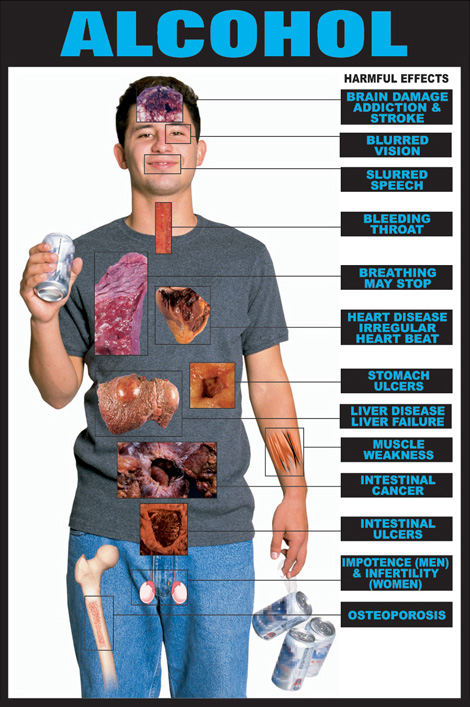
There are two patterns of drinking that cause harm:
Binging (drinking more than 5 drinks in a short time such as 1 – 2 hours).
Regular excessive drinking can result in damage to many body organs, especially the liver. The National Health and Medical Research Council (NHMRC) advises that men consume less than 4 standard drinks (40g alcohol) per day and women less than 2 standard drinks (20g alcohol) per day.
Women are more susceptible to damage from alcohol than men because they break alcohol down (metabolise it) more slowly.
These recommendations are supported by a number of other bodies including the National Heart Foundation and the Medical Association.
Why do some people drink too much?
The use of alcohol is very much a part of the American way of life and is actually encouraged by peer pressure and advertising. Many people use alcohol to change how they feel about themselves and about life and for some with a strong family history of alcohol dependence, genetic factors can influence drinking patterns. Once excessive alcohol use has become a habit, this behavior can develop its own momentum.
What effect does alcohol have on the body?
Intoxication (getting drunk)
The immediate effects of alcohol depend upon the amount of alcohol in the blood and whether the person is an experienced drinker. As the blood alcohol rises, some drinkers feel more relaxed and are often more talkative. They become less aware of their behavior and judgement is often impaired. Loss of co-ordination and drowsiness may occur. The risk of accidents rises, particularly for those involved in operating machinery and driving cars. An individual with a blood alcohol level of 0.05 has twice the risk of having a motor vehicle accident as one with a blood alcohol level of zero.

Long term effects
Alcohol Dependence
Tolerance: Ability to drink progressively larger amounts without apparent intoxication.
Alcohol seeking behavior: Craving: continuing to drink despite adverse effects.
Physical Side Effects
- Medical Liver disease: Liver inflammation and fat deposition. These may progress to liver failure. Cirrhosis (scarring)
- Stomach and bowel diseases:
- Heartburn and indigestion due to an inflamed gullet (reflux) or stomach (gastritis)
- Diarrhea: Inflammation of the pancreas (Pancreatitis) leading to abdominal pain or inability to absorb food
- Cancer of the liver, gullet, bowel
- Brain damage:
- Memory loss and difficulty learning (dementia)
- Poor co-ordination and balance
- Other neurological diseases: Damage to nerves, leading to numbness in the legs and difficulty walking
- Heart & blood vessel diseases:
- Heart failure (leading to shortness of breath and ankle swelling)
- Palpitations
- High Blood Pressure (Hypertension)
-
- Bone & joint disorders:
- Gout (painful swelling of the joints, most commonly the big toe)
- Osteoporosis (thinning of the bones which may lead to fractures/broken bones)
- Accidents:
- Head injury
- Blood clots around the brain
- Broken bones (especially the ribs)
- Road accidents
- Accidents at work or home
- Nutrition:
- Malnutrition
- Obesity
- Other: Interactions with other drugs e.g. drugs used to treat epilepsy.
- Sexual & reproductive disorders: Damage to the testicles leading to impotence. Damage to the unborn baby
- Bone & joint disorders:
Psychological Side Effects
-
-
- Difficulty sleeping
- Anxiety and agitation
- Depression and inability to cope
- Confusion and panic attacks
- Alcoholic ‘blackouts’
- Suicide
-
Social Side Effects
-
-
- Domestic problems:
- Loss of friends
- Difficulties in marriage or other significant relationships
- Separation and divorce
- Neglect of children
- Neglect of responsibilities
- Occupational:
- Lateness or absences from work
- Demotion/failure to gain promotion
- Domestic problems:
-
-
-
- Financial problems:
- Loss of regular income from employment
- Hardship from money spent on alcohol
- Gambling debts
- Money lost on bad decisions made under the influence of alcohol
- Legal problems:
- Drunk-driving offences/loss of license
- Property crime
- Assault
- Homicide
- Financial problems:
-
Alcohol abuse is characterized by recurrent performance problems on the job or at school that result either from the after effects of drinking alcohol or from actual intoxication on the job or at school.
People with alcohol abuse disorders often continue to consume alcohol despite the knowledge that continued use causes significant social or interpersonal problems for them. And people with alcohol use disorders often consume alcohol despite knowing that they suffer from alcohol-related medical problems such as liver disease.
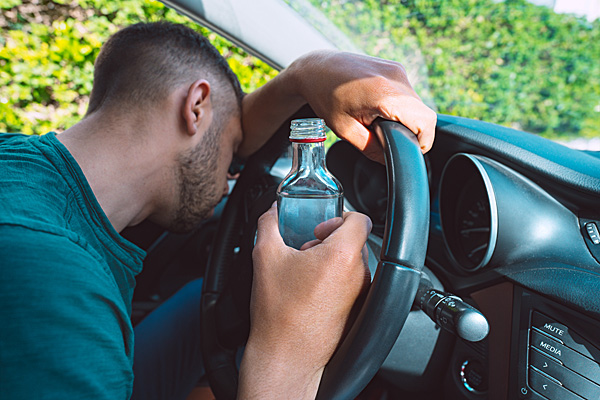
Prevention
Prohibition of any drug including alcohol has been shown to do nothing to reduce the harm caused by that drug and may actually make matters worse. Alcohol can be part of a healthy lifestyle if it is used in moderation. Some people are able to moderate their drinking; some people need to stop drinking altogether. Only you can decide what you are capable of consuming.
Drinking Tips to Reduce Harm
-
-
- Don’t drink alcohol to quench your thirst. Use non-alcoholic drinks.
- Use spacers (alcohol free drinks) between alcoholic drinks to prevent excessive alcohol consumption.
- Drink low alcohol beverages.
- Count your drinks, keeping within the recommended guidelines.
- Don’t refill your glass until it is empty.
- Alternate sips of alcohol with sips of water or other non-alcoholic liquids.
- Don’t gulp drinks. Take smaller sips and drink slowly.
- Eat before drinking. Your drink will take longer to be absorbed.
- Don’t drink if you are pregnant. It may damage the health of your unborn child.
- Don’t drink if you are operating machinery, you put your fellow workers as well as yourself at risk.
- If you are a regular drinker, have at least two alcohol-free days each week.
- Don’t drink to cope with stress. Exercise, relaxation, meditation or talking to friends are safer ways of coping.
-
Alcoholic Liver Disease
Alcoholic liver disease occurs after prolonged heavy drinking, typically for at least 10 years and particularly among those who are physically dependent on alcohol.
However, not everyone who drinks alcohol to excess develops serious forms of alcoholic liver disease. It is likely that genetic factors determine this and a family history of cirrhosis may indicate a higher risk.
Other factors include being overweight and iron overload (see Haemochromatosis). Women are more susceptible to alcoholic liver disease than men.
Liver problems caused by alcohol include:
Fatty liver
-
-
- Alcoholic hepatitis
- Alcoholic cirrhosis
- Fatty Liver
- This may occur in people who drink 30g or more of alcohol each day.
- Alcohol abuse can lead to the accumulation of fat within the liver cells.
- Management includes reducing alcohol intake and weight loss.
- Alcohol dependence needs to be recognized and dealt with.
- Fatty liver can lead to inflammation and eventually scarring of the liver and cirrhosis.
-
Alcoholic hepatitis
Excessive use of alcohol can cause acute and chronic hepatitis (inflammation of the liver). Usually occurs in someone who is a chronic drinker with a recent episode of prolonged heavy consumption.
Alcoholic hepatitis can range from a mild hepatitis to severe liver problems with symptoms of:
-
-
- jaundice (yellow skin)
- mental confusion caused by liver failure
- scites (fluid retention in the abdomen)
- bleeding esophageal varices (varicose veins in the esophagus)
- abnormal blood clotting
- coma
- Alcoholic hepatitis is reversible if the person stops drinking but it can take several months for reversal to occur. Alcoholic hepatitis can lead to liver scarring and cirrhosis and very frequently occurs in alcoholics who already have cirrhosis of the liver.
-
Cirrhosis
Anything which results in severe liver injury can cause cirrhosis.
-
-
- Common causes include:
- excessive alcohol intake
- chronic hepatitis B and C infection
- intake of certain chemicals and poisons
- too much iron or copper
- severe reaction to drugs
- obstruction of the bile duct
-
Cirrhosis of the liver is a degenerative disease where liver cells are damaged and replaced by scar formation.
As scar tissue progressively accumulates, blood flow through the liver is diminished, causing even more liver cells to die.
Loss of liver function can result in disturbances in important liver functions such as:
-
-
- the processing of nutrients and hormones/li>
- the detoxification of drugs and poisons, including alcohol
-
In more advanced liver disease there can be:
-
-
- Enlargement of the liver and spleen
- Jaundice
- Accumulation of fluid in the abdomen and other tissues of the body
- Impaired blood clotting which can lead to internal bleeding
-
Some types of cirrhosis can be treated but often there is no cure. At this point, treatment is mostly supportive and may include adherence to a special diet, diuretics (fluid tablets) and abstinence from alcohol. If the cirrhosis has been caused by a virus such as hepatitis C, some people can undergo HCV treatment which may reduce the chance of progression to more advanced liver disease.
Although cirrhosis is not reversible, people who stop drinking may avoid progression to liver failure and/or liver cancer.
• “Hepatitis C, other liver disorders and liver health” – a practical guide, by Geoffrey C Farrell
• “Alcoholic Liver Disease” by Howard J. Worman M.D
Alcohol Statistics
- More than 100,000 U.S. deaths are caused by excessive alcohol consumption each year. Direct and indirect causes of death include drunk driving, cirrhosis of the liver, falls, cancer, and stroke.
- At least once a year, the guidelines for low risk drinking are exceeded by an estimated 74% of male drinkers and 72% of female drinkers aged 21 and older.
- 65% of youth surveyed said that they got the alcohol they drink from family and friends.
- Nearly 14 million Americans meet diagnostic criteria for alcohol use disorders.
- Youth who drink alcohol are 50 times more likely to use cocaine than those who never drink alcohol.
- Among current adult drinkers, more than half say they have a blood relative who is or was an alcoholic or problem drinker.
- Across people of all ages, males are four times as likely as females to be heavy drinkers.
- More than 18% of Americans experience alcohol abuse or alcohol dependence at some time in their lives.
- Traffic crashes are the greatest single cause of death for persons aged 6–33. About 45% of these fatalities are in alcohol-related crashes.
- Underage drinking costs the United States more than $58 billion every year — enough to buy every public school student a state-of-the-art computer.
- Alcohol is the most commonly used drug among young people.
- Problem drinkers average four times as many days in the hospital as nondrinkers — mostly because of drinking-related injuries.
- Alcohol kills 6.5 times more young people than all other illicit drugs combined.
- Concerning the past 30 days, 50% of high school seniors report drinking, with 32% report being drunk at least once.
Had Enough? Ready to Take Control?
Sources
- Substance Abuse: The Nation’s Number One Health Problem, Feb. 2001
- Mothers Against Drunk Driving
- National Center on Addiction and Substance Abuse
- National Highway Traffic Safety Administration
- Alcohol Health & Research World
- National Institute on Alcohol Abuse and Alcoholism Analysis
- The Century Council
Alcohol–Alcohol Use Test
Take our quick self-test below and find out the answers to these questions and many more. Our self-test will allow you to assess your own beliefs, attitudes, and behaviors concerning alcohol use so that you can understand how you can make changes that will help you live a more healthy lifestyle. Keep in mind the test is for your eyes only, so please answer each question honestly.
The Alcohol Use Disorders Identification Test was developed and evaluated over a period of two decades by the World Health Organization. It has been found to provide an accurate measure of risk across gender, age, and cultures.
Select your answer for each question:
How often do you drink alcohol?
- Never
- Monthly or less
- Two to four times a month
- Two to three times a week
- Four or more times a week
When you drink, how many drinks do you typically have?
- 1 or 2
- 3 or 4
- 5 or 6
- 7 to 9
- 10 or more
How often do you drink 6 or more drinks?
- Never
- Less than monthly
- Monthly
- Weekly
- Daily or almost daily
How often in the last year did you find that you could not control your drinking once you’d started drinking?
- Never
- Less than monthly
- Monthly
- Weekly
- Daily or almost daily
How often in the last year did you fail to do what was expected of you because of drinking?
- Never
- Less than monthly
- Monthly
- Weekly
- Daily or almost daily
How often in the last year have you needed a first drink in the morning to get you going after a heavy-drinking session?
- Never
- Less than monthly
- Monthly
- Weekly
- Daily or almost daily
How often in the last year have you felt guilt or remorse after drinking:
- Never
- Less than monthly
- Monthly
- Weekly
- Daily or almost daily
How often in the last year have you been unable to remember what happened the night before because you had been drinking?
- Never
- Less than monthly
- Monthly
- Weekly
- Daily or almost daily
Have you or someone else been injured as a result of your drinking?
- No
- Yes, but not in the last year
- Yes, during the last year
Has a relative, friend, doctor or other health worker been concerned about your drinking or suggested you cut down or stop?
- No
- Yes, but not in the last year
- Yes, during the last year
Total your score:
For every #2 answer – give yourself 1 point
For every #3 answer – give yourself 2 points
For every #4 answer – give yourself 3 points
For every #5 answer – give yourself 4 points
Evaluate your score (totals):
0-8
Congratulations! You have scored within the Zone 1 alcohol level, which means that you have a very low-risk of becoming alcohol dependent.
8-15
You have scored within the Zone 2 alcohol level, which means that you are slightly above the low-risk guidelines and may be at risk.
Read the advice and tips at the bottom of this Self-Test. You may wish to take into consideration a reduction in your alcohol consumption.
15-19
You have scored within the Zone 3 alcohol level, which means you are at risk for becoming alcohol dependent.
Note the effects that alcohol can have on you:
- Lack of concentration
- Slurred speech
- Rapid change in mood
- Weight loss or loss of appetite
- Slow moving, lethargic
- Reddening of the whites of the eyes
- Reduced rapid eye movement
- Impeded memory
Read the advice and tips at the bottom of this Self-Test. Contact me for alcohol moderation or cessation. If you are ready to take control, you can do it! Appointments are available on Zoom and In-person. You can also find helpful audio downloads in my store that help you take control. The sooner you take control, the sooner you have your life and your pride back.
20 or higher
You have scored within the Zone 4 risk level, which means that you need to seek a specialist to help you get control or further treatment information or support groups.
You may be experiencing:
- The need to drink before confronting certain situations
- Frequent intoxication
- A steady increase in the amount of alcohol consumed
- Solitary drinking
- Early morning drinking
- Denial of drinking
- Family disruptions over drinking
- Blackouts or temporary amnesia
- Continuing to drink despite adverse consequences from drinking
If you are ready to take control, you can do it! Programs are available in office, by phone and on audio. The sooner you take control, the sooner you have your life, your pride and your freedom back.
Contact us
General Guidelines
Please be advised that one should never drink under these circumstances:
- When pregnant or attempting to conceive
- When driving or operating machinery
- When using medications, including over-the-counter
- When recovering from alcohol dependence
- When a contra-indicated medical condition is present, such as peptic ulcer
A standard drink is considered to be:
- 12 ounces of beer
- 5 ounces of wine, or
- 1.5 ounces of distilled liquor
Keep in mind that alcohol affects men and women differently, depending on age, gender, physical condition, amount of food consumed, any drugs or medication. For women, changes in their monthly menstrual cycle can alter the affect that alcohol has on them.
Health tips:


- Eat healthy foods
- Don’t smoke, drink alcohol excessively or use drugs
- Reduce stress by taking short breaks and relaxing every day
- Get enough rest
- Increase your daily physical activity
- Don’t involve your children in your drinking. For example, don’t ask them to help mix you a drink or bring you a beer
- Be a good role model by drinking responsibly and in moderation, and not engaging in any illegal, unhealthy or dangerous drug use practices.
More Alcohol Statistics
- Each year, a typical young person in the United States is inundated with more than 1,000 commercials for beer and wine
coolers and several thousand fictional drinking incidents on television. - Alcohol is involved in 50% of all driving fatalities.
- In the United States, every 30 minutes someone is killed in an alcohol related traffic accident.
- Over 15 million Americans are dependent on alcohol. 500,000 are between the age of 9 and 12.
- Each year the liquor industry spends almost $2 billion dollars on advertising and encouraging the consumption of
alcoholic beverages. - Americans spend over $90 billion dollars total on alcohol each year.
- An average American may consume over 25 gallons of beer, 2 gallons of wine, and 1.5 gallons of distilled spirits each
year. - Pregnant women who drink are feeding alcohol to their babies. Unfortunately the underdeveloped liver of the baby can
only burn alcohol at half the rate of its mother, so the alcohol stays in the baby’s system twice as long. - Each year students spend $5.5 billion on alcohol, more then they spend on soft drinks, tea, milk, juice, coffee, or books
combined. - 56% of students in grade 5 to 12 say that alcohol advertising encourages them to drink.
- 6.6% of employees in full time jobs report heavy drinking, defined as drinking five or more drinks per occasion on five or
more days in the past 30 days. - The highest percentage of heavy drinkers (12.2%) is found among unemployed adults between the age of 26 to 34.
- Up to 40% of all industrial fatalities and 47% of industrial injuries can be linked to alcohol consumption and alcoholism.
- In 2000, almost 7 million persons age 12 to 20 was a binge drinker; that is about one in five persons under the legal
drinking age was a binge drinker. - The 2001 survey shows 25 million (one in ten) Americans surveyed reported driving under the influence of alcohol. This
report is nearly three million more than the previous year. Among young adults age 18 to 25 years, almost 23% drove
under the influence of alcohol. - Drunk driving is proving to be even deadlier then what we previously know. The latest death statistics released by the
National Highway Traffic Safety Administration (NHTSA), using a new method of calculation show that 17,488 people
where killed in alcohol related traffic accidents last year. This report represents nearly 800 more people where killed
than the previous year. - Alcohol is the number 1 drug problem in America.
- 43% of Americans have been exposed to alcoholism in their families.
- Nearly one out of 4 Americans admitted to general hospitals have alcohol problems or are undiagnosed alcoholics
being diagnosed for alcohol related consequences. - Alcohol and alcohol related problems is costing the American economy at least $100 million in health care and lost of
productivity every year. - Four in ten criminal offenders report alcohol as a factor in violence.
- Among spouse violence victims, three out of four incidents were reported to have involved alcohol use by the offender.
- In 1996, local law enforcement agencies made an estimated 1,467,300 arrests nationwide for driving under the influence of alcohol.
Treatment
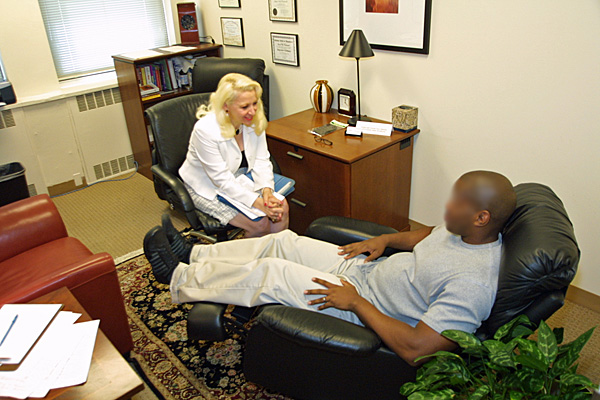
Alcohol abuse is an extremely complex issue and often requires a range of treatments. Any behavior change takes commitment, whether it is changing diet, giving up smoking, starting an exercise regime or modifying drinking habits.
The first step in treatment is the recognition by the person that drinking could be causing harm – both to themselves and to people around them. Fortunately today, there are many choices available in regard to treatment.
Options range from complete abstinence (for people with a severe drinking problem) to controlled drinking where people learn what triggers excessive drinking and how to change their response to these triggers and thereby moderate their drinking. Hypnosis is a very effective method to successfully take control and change those responses.
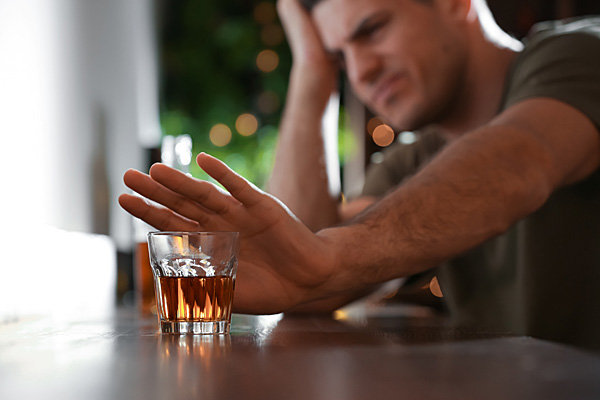

Share this page…

